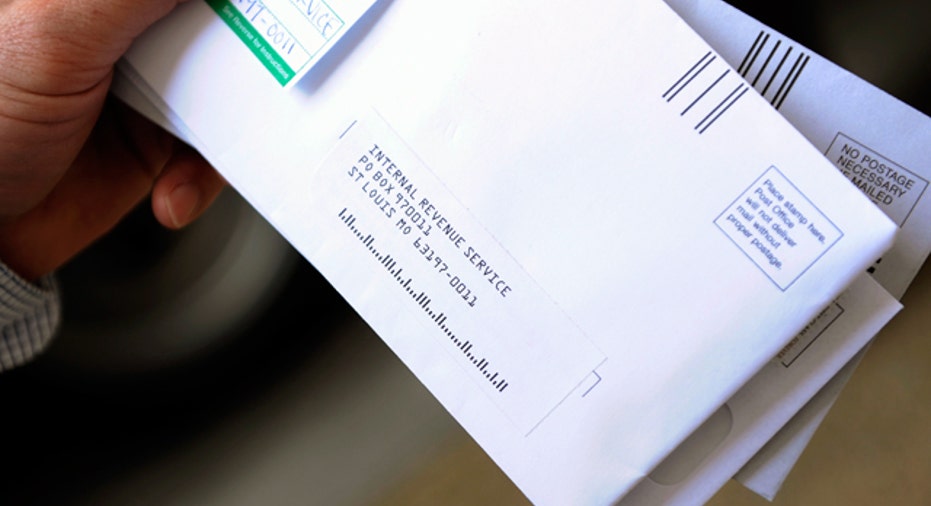How Small Business Owners Can Audit Proof Their Tax Return

When you’re self-employed filing a Schedule C with your tax return, your chances of being audited are greater than if you were a wage earner.
The IRS knows there is a better chance for you to either hide income or write off personal expenses as business deductions and it casts the net wider to rake in more self-employed folks versus W2 employees when deciding who to audit.
Here’s how you can keep them off your back:
1. Use QuickBooks or another professional software system to track your business’ income and expenses. Your credibility increases in the eyes of an IRS agent if your tax return is based on professionally-prepared financial statements, especially if maintained by an outside firm. You can use the same software to track your personal income and expenses as well.
2. Document red flags. You are allowed to deduct all ordinary and necessary business expenses. Think in terms of “Would I make this purchase if I didn’t have this business?” If the answer is no, you more than likely have a deductible business expense. But it’s important to know the rules and to have proper documentation to substantiate the deduction. Some expenses receive considerably more scrutiny than others.
Automobile expense is a favorite area the IRS explores. Taxpayers are required to keep a mileage log, however, I have met only one client who actually kept one. And yet I’ve represented clients in numerous audits and found ways other than presenting a mileage log to substantiate the deduction to the satisfaction of the auditor.
Here are some tips:
If you use an appointment book or calendar, save it along with your copy of the tax return. A mileage log can be reconstructed from those pages;
Save vehicle repair receipts—they often contain the odometer reading, and total mileage for the year can be extrapolated if there is more than one receipt;
Record your beginning and ending odometer reading in your appointment book on Jan. 1 and again on Dec. 31.
Travel, meals and entertainment write offs also get a lot of scrutiny. Go to www.irs.gov and read publication 463 to determine what you can and can’t deduct and follow the rules.
Travel, especially to vacation destinations like Las Vegas or Hawaii, should be documented with more than purchase receipts to prove business intent. Flyers advertising the trade show or the continuing education seminar or letters from prospective clients at that location should be maintained in the tax file to prove the validity of the deduction;
Mark the name of the person entertained and a brief note describing the business purpose on receipts for meals and entertainment.
Home Office. Telecommuting and work from home offices is becoming more popular, but the IRS still likes to sniff out these deductions:
Take photographs of the house and the office area. This will serve two purposes: It will show the proportion of the business area versus the personal living area to substantiate the amount of space claimed and it will show that there is in fact a business area;
Know the rules. The home office must be your principal place of business and must be used exclusively and on a regular basis for business purposes.
Document sources of all income. If you are audited, the first thing the IRS agent will do is add up all of the deposits from your personal and business bank accounts. If more money went into the bank than was declared on your tax return, the IRS will want to know where the money came from and whether or not the income is taxable.
If you use QuickBooks for your personal and business books, you will automatically tie out this income. But you still need proof. If the income you record is not taxable, e.g. gifts, inheritances, loans, transfers from personal funds, then keep a copy of the check or document that accompanies the income.
Let a professional prepare your income tax return. Self-prepared returns are more likely to be audited because the IRS believes that a nonprofessional has limited knowledge. Besides, you may find that the fee charged by an enrolled agent or CPA might be wiped out by the added deductions they spot for you. Tax law is complex, after all, there are more than 14,000 pages of tax code. And if you are self-employed, no matter how small your business, your tax return is now a complex creature.
Rethink your legal form. Corporations, LLCs, and partnerships are less likely to be audited. But that should not be the sole reason to incorporate. Discuss this option with a tax professional and your attorney before deciding.
Bonnie Lee is an Enrolled Agent admitted to practice and representing taxpayers in all fifty states at all levels within the Internal Revenue Service. She is the owner of Taxpertise in Sonoma, CA and the author of Entrepreneur Press book, “Taxpertise, The Complete Book of Dirty Little Secrets and Hidden Deductions for Small Business that the IRS Doesn't Want You to Know.” Follow Bonnie Lee on Twitterat BLTaxpertise and at Facebook.



















